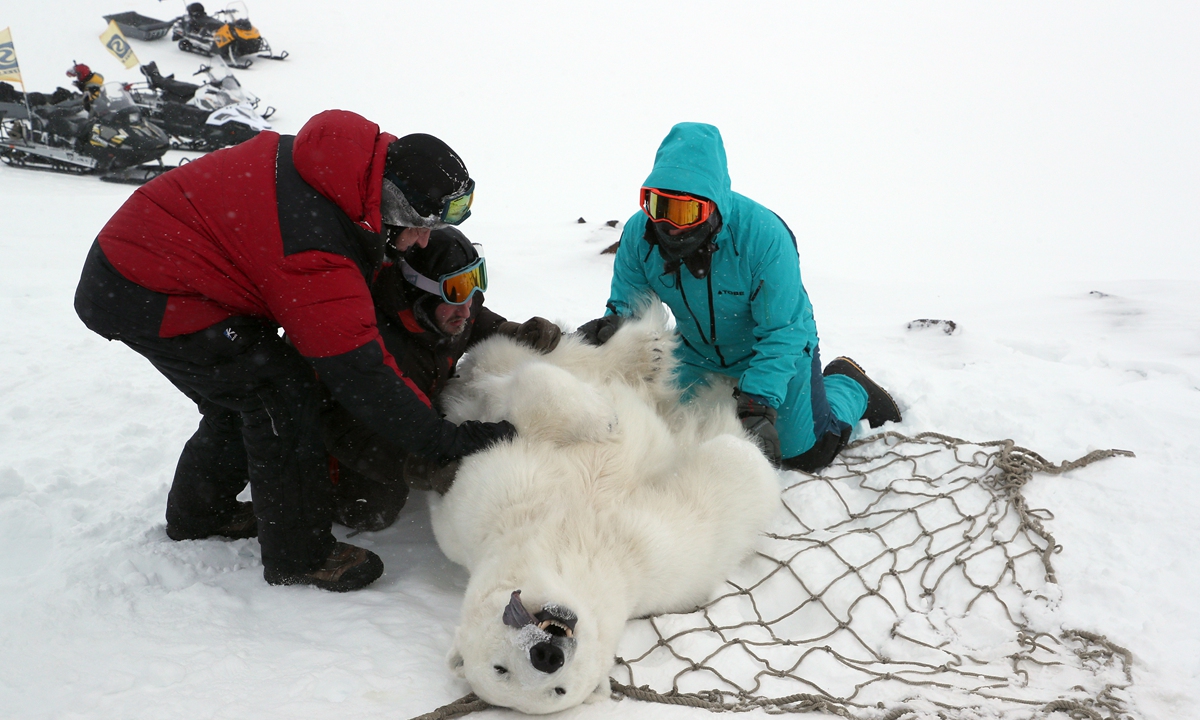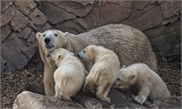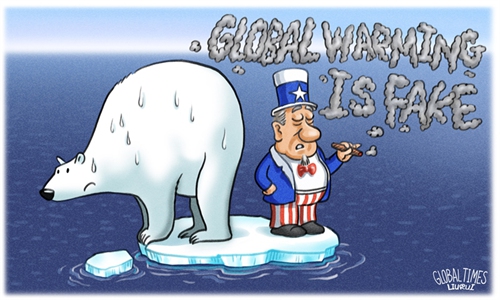Polar bears forced to forage eggs as warming shrinks hunting grounds
Polar bears forced to forage eggs amid warming
Hungry polar bears are increasingly foraging on seabird eggs as climate change shrinks their Arctic hunting grounds, but research published Wednesday on the phenomenon highlights the struggle these apex predators have to adapt to their rapidly changing environment.

This is already leading to dwindling sea ice, cutting short the time they have to hunt seals, their preferred prey.
With a growing imperative to find alternative sustenance, polar bears have been pushed further afield in search of food, including scavenging in areas populated by humans.
Some bears are also coming ashore at the same time seabirds are nesting and are snacking on their eggs. To measure how efficient these top-of-the-food-chain predators were at this foraging - and therefore how useful the eggs are to provide energy in their diets - researchers in Canada used drones to monitor them feeding from common eider duck nests on Mitivik Island, in Nunavut. The study, published in the journal Royal Society Open Science, tracked how the bears approached the nesting site over a period of 11 days, as the number of eggs was depleted.
"We found that later-arriving bears increasingly visited more empty nests and did not travel in an energy-minimizing way, but became less picky in the clutches they consumed," said lead author Patrick Jagielski, of the Great Lakes Institute for Environmental Research at the University of Windsor.

Researchers examine an anaesthetised Polar bear on Franz Joseph Land in the Arctic Ocean during the Umka 2021 expedition organised by the Russian Geographical Society. Photo: VCG
The climate change threat to polar bears is well known, driven by the extraordinary pace of change in the Arctic, which is warming twice as fast as the planet as a whole.This is already leading to dwindling sea ice, cutting short the time they have to hunt seals, their preferred prey.
With a growing imperative to find alternative sustenance, polar bears have been pushed further afield in search of food, including scavenging in areas populated by humans.
Some bears are also coming ashore at the same time seabirds are nesting and are snacking on their eggs. To measure how efficient these top-of-the-food-chain predators were at this foraging - and therefore how useful the eggs are to provide energy in their diets - researchers in Canada used drones to monitor them feeding from common eider duck nests on Mitivik Island, in Nunavut. The study, published in the journal Royal Society Open Science, tracked how the bears approached the nesting site over a period of 11 days, as the number of eggs was depleted.
"We found that later-arriving bears increasingly visited more empty nests and did not travel in an energy-minimizing way, but became less picky in the clutches they consumed," said lead author Patrick Jagielski, of the Great Lakes Institute for Environmental Research at the University of Windsor.



